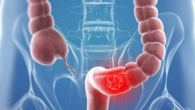
This is why not all obese patients develop type 2 diabetes
0
Sugar builds up in the bloodstream and, if left untreated, this effect damages many major organs, sometimes to a disabling or life-threatening degree. A key risk factor for type 2 diabetes is being overweight, which often results from eating too much fat and sugar combined with low physical activity.
Scientists wanted to know which organs, biological pathways and genes play a role this role. Findings showing that a particular type of gut microbe leads to the formation of white adipose tissue containing macrophage cells – large cells that are part of the immune system – are linked to insulin resistance.
Researchers found that the Oscillibacter microbe enriched in a Western diet causes an increase in insulin-resistant adipose tissue macrophages. Oscillibacter is likely not the only microbial regulator of the expression of the key gene they identified – Mmp12 – and that the Mmp12 pathway.
“A diet high in fat and sugar primarily affects white adipose tissue, causing the associated microbiota damages the process of energy synthesis, which leads to systemic insulin resistance. A treatment that changes the patient's microbiota in such a way as to affect insulin resistance in the macrophage cells of adipose tissue may become a new therapeutic strategy for type 2 diabetes,” commented the physician-therapist on the study.









Leave a Reply